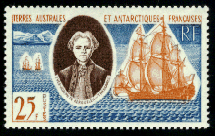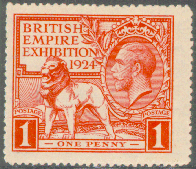 ISWSC Exchange & Trading Standards
ISWSC Exchange & Trading Standards 



The "Golden Rules" for Philatelic Trades
Among ISWSC Members
 ISWSC Exchange & Trading Standards
ISWSC Exchange & Trading Standards 



The "Golden Rules" for Philatelic Trades
Among ISWSC Members
One of the best aspects of joining the ISWSC is having the opportunity to trade with fellow members who share common interests with you. These arrangements may include:
a. one for one swaps
b. exchanges based on an agreeable catalog pricing structure
c. trades by want lists
d. deals involving cash payments
e. combinations of any of the above
Before any exchange of material occurs, it is best to clarify one's responsibilities under such trades. The following guidelines have been established for trades between ISWSC members. To avoid misunderstandings on either member's part, all ISWSC members are asked to follow these simple tips:
Initiating an Exchange When writing to a prospective exchange partner, be very specific as to what you are looking for, the form or basis you wish to exchange and what you are willing to offer in trade. If more than a one time trade is desired, mention the frequency of mailings (once a month, etc.). As a courtesy, include a self-addressed stamped envelope (SASE) to members within your country, or an international reply coupon (IRC) and return address label for collectors in other nations. Never mail philatelic items without first agreeing to all points of a potential exchange.
Make sure to mention if material is to be sent by surface rate, airmail, certified, insured and/or registered. Remember that all letters are mailed at the sender's risk if uninsured against loss. Basic registration is very expensive from the US ($4.85 for domestic or international plus postage, insurance, etc.), but is often cheaper for members from other nations. Ask in your letter which is the safest mode to mail exchanges. Registered or nicely franked philatelic mail is sometimes an indication to postal employees that a letter is worth stealing. Your correspondent should advise you in this regard.
Receiving an Offer You should never feel forced to enter into an unsolicited exchange. It is always your choice. You should always acknowledge receipt of all offers, even if declining to trade, unless you are listed as a non-trading member in the ISWSC roster. If you prefer not to receive trade/exchange offers, you should be listed as "non-trading". You may convert to non-trading status by notifying headquarters, but be aware that it may take 2-3 months for the change to appear in "The Circuit". Please respond and decline all offers until your status is published. You may convert back to trading status at any time.
Once Exchanges Begin
Keep accurate records of letters mailed: date mailed, to whom, where sent, and a list of contents. It may be wise to request a mailing receipt from the post office as proof of mailing and/or delivery. In the US, "recorded delivery" is available to some overseas countries for $1.10. Should a trade go astray, or you encounter a problem, the ISWSC President may be contacted to intervene and mediate a settlement. You must provide full details and any postal receipts. Please pursue insured and registered mail losses through proper channels first.
Traders often have different quality standards. Always send carefully selected items of the best quality available. Do not send damaged stamps, CTO's, perfins or precancels unless your trader has agreed to accept them. Since it is possible to miss minor faults such as thins, pulled perfs, small tears, etc., give your exchange partner the benefit of the doubt and simply return them explaining the problem in your next letter.
If you go away on vacation for any extended period of time, notify all of your traders at least a month or two in advance so that they can time their mailings appropriately.
Frequent traders may wish to exchange return address labels as a convenience to one another.
We are all stamp collectors, and very few of us also collect meter imprints. Use recent commemoratives and when possible, use hand or special event cancels to avoid killer postmarks on your mail.
As an ISWSC member, you are expected to abide by the principles outlined in this brochure. They were developed to ensure that all members worldwide follow the same standards to avoid any misunderstandings with one another.
Contact the ISWSC President with any exchange problems you encounter. Send full details, including date mailed, to whom and where addressed, ISWSC membership numbers of both parties, and any supporting documentation available. Be as specific as possible. Include a SASE or IRC with your initial letter. Formal proceedings have been developed to resolve the majority of situations. In the most severe cases, expulsion may be recommended by the ISWSC Board of Directors.